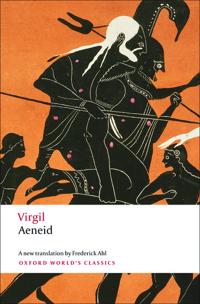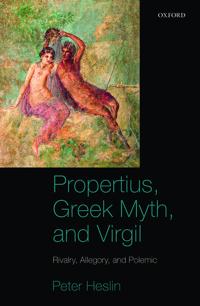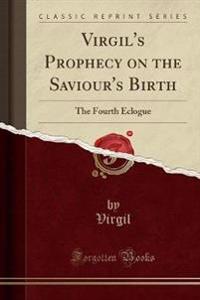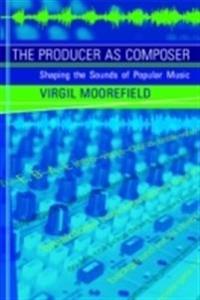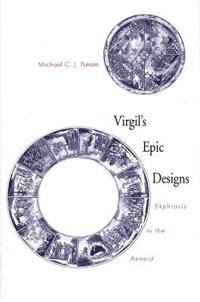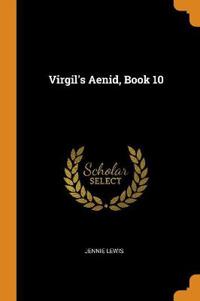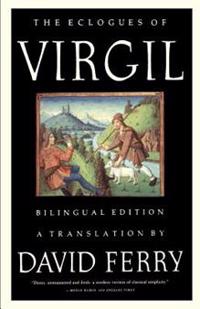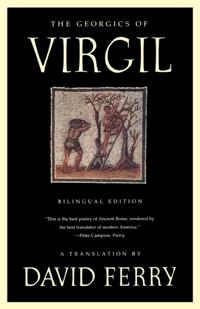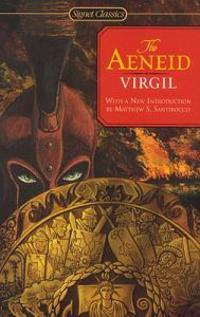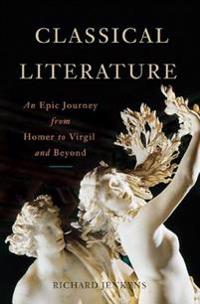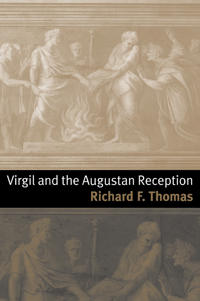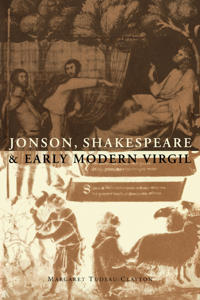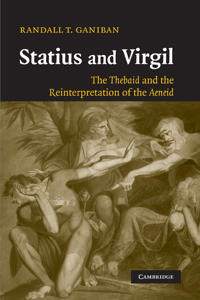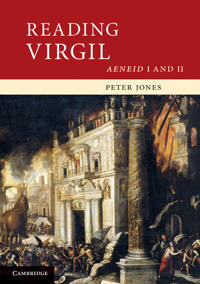Virgil and his Translators
ISBN: 9780198810810 - UTGIVEN: 2018-09This is the first volume to offer a critical overview of the long and complicated history of translations of Virgil from the early modern period to the present day, transcending traditional studies of single translations or particular national traditions in isolation to offer an insightful comparati[...]
Other Virgil, The: Pessimistic Readings of the Aeneid in Early Modern Culture (Inbunden)
avCraig Kallendorf
ISBN: 9780199212361 - UTGIVEN: 2007-10-18Aeneid (Häftad)
avVirgil
ISBN: 9780199231959 - UTGIVEN: 200807'Arms and the man I sing of Troy...' So begins one of the greatest works of literature in any language. Written by the Roman poet Virgil more than two thousand years ago, the story of Aeneas' seven-year journey from the ruins of Troy to Italy, where he becomes the founding ancestor of Rome, is a nar[...]
Understanding Canton: Rethinking Popular Culture in the Republican Period (Inbunden)
avVirgil Ho
ISBN: 9780199282715 - UTGIVEN: 2005-12-22Georgics (Pocket)
avVirgil
ISBN: 9780199538836 - UTGIVEN: 2009-02-01Part agricultural manual, part political poem and allegory, the Georgics' scenes are real and vivid, and the poet-farmer Peter Fallon restores to life the sights, sounds, and textures of the ancient Italian landscape.[...]
Propertius, Greek Myth, and Virgil
ISBN: 9780199541577 - UTGIVEN: 2018-08This volume offers a strikingly innovative account of Propertius' relationship with Virgil, positing a keen rivalry between two of the greatest poets of Latin literature, contemporaries within the circle of Maecenas. It begins by examining all of the references to Greek mythology in Propertius' firs[...]
The Producer as Composer (Häftad)
avVirgil Moorefield
ISBN: 9780262514057 - UTGIVEN: 201003In the 1960s, rock and pop music recording questioned the convention that recordings should recreate the illusion of a concert hall setting. The Wall of Sound that Phil Spector built behind various artists and the intricate eclecticism of George Martin's recordings of the Beatles did not resemble li[...]
Virgil (häftad)
ISBN: 9780300051025 - UTGIVEN: 1991-12Slavitt puts Virgil's poems in their biographical and historical context and provides analyses of the "Eclogues", the "Georgics", and the "Aeneid". He also looks at Virgil's continuing popularity and at the legends that grew up about him in the Middle Ages as a magician or necromancer.[...]
Virgil's Epic Designs
ISBN: 9780300073539 - UTGIVEN: 1998-08In his final masterpiece, the Aeneid, Virgil frequently uses ekphrasis-a self-contained aside, a pause to describe a work of art or other object. Virgil's ekphrases incorporate major themes of the epic, enrich the reader's understanding of its meaning, and provide metaphors for the entire poem, says[...]
Virgil's Aenid, Book 10 (häftad)
ISBN: 9780343592905 - UTGIVEN: 2018-10This work has been selected by scholars as being culturally important and is part of the knowledge base of civilization as we know it.This work is in the public domain in the United States of America, and possibly other nations. Within the United States, you may freely copy and distribute this work,[...]
The Eclogues of Virgil: A Bilingual Edition (häftad)
ISBN: 9780374526962 - UTGIVEN: 2000-06Virgil's great lyrics, rendered by the acclaimed translator of "The Odes of Horace" and "Gilgamesh""The Eclogues of Virgil" gave definitive form to the pastoral mode, and these magically beautiful poems, which were influential in so much subsequent literature, perhaps best exemplify what pastoral ca[...]
Understanding the Culture of Markets (Inbunden)
avVirgil Henry Storr
ISBN: 9780415777469 - UTGIVEN: 2012-11-28"How does culture impact economic life? Is culture like a ball and chain that actors must lug around as they pursue their material interests? Or, is culture like a tool-kit from which entrepreneurs can draw resources to aid them in their efforts? Or, is being immersed in a culture like wearing a pai[...]
The Aeneid (Pocket)
avVirgil, Matthew S. Santirocco
ISBN: 9780451531179 - UTGIVEN: 200902"I sing of arms and the man..."
So begins the ageless epic of Aeneas and his men, who are seemingly destined to wander the ancient world endlessly, the playthings of wrathful gods. Fleeing the ruins of Troy, Aeneas must fight his battles with little notion that Jupiter has ordained that the Tro[...]Classical Literature: An Epic Journey from Homer to Virgil and Beyond
ISBN: 9780465097975 - UTGIVEN: 2016-03
G.W. Bowersock, "The New York Review of Books"
There is scarcely anything on which he does not offer an original apercu, sometimes illuminating, sometimes simply provocative, but always worth reading... Jenkyns's view of ancient literature is Olympian.
The writings of the Greeks and Roma[...]Prepare for Saints: Gertrude Stein, Virgil Thomson and the Mainstreaming of American Modernism (Pocket)
avSteven Watson
ISBN: 9780520223530 - UTGIVEN: 2000-07-03Virgil and the Mountain Cat: Poems (Övrig)
avDavid Lau
ISBN: 9780520258747 - UTGIVEN: 2009-03-02At once uncompromising and highly inventive, David Lau's poems are imbued with a musicality that lightens the dark undertones of spoliation and entropy. Many of the poems embody a nexus of interaction with historical events, films, modernist poetic texts, and works of art - but from this allusion an[...]
Virgil And the Augustan Reception
ISBN: 9780521028950 - UTGIVEN: 2006-11This book is an examination of the ideological reception of Virgil at specific moments in the last two millennia. The author focuses on the emperor Augustus in the poetry of Virgil, detects in the poets and grammarians of antiquity alternately a collaborative oppositional reading and an attempt to s[...]
Jonson, Shakespeare and Early Modern Virgil
ISBN: 9780521032742 - UTGIVEN: 2006-11In this wide-ranging and original study, Margaret Tudeau-Clayton examines how Virgil - the poet as well as his texts - was mediated in early modern England. She analyses what was at stake in the reproduction of these mediations of Virgil, focusing specifically on the works of Ben Jonson and on one o[...]
Statius and Virgil
ISBN: 9780521169110 - UTGIVEN: 2010-09At the end of the Thebaid, Statius enjoins his epic 'not to compete with the divine Aeneid but rather to follow at a distance and always revere its footprints'. The nature of the Thebaid's interaction with the Aeneid is, however, a matter of debate. This 2007 book argues that the Thebaid reworks the[...]
Reading Virgil (Häftad)
avPeter Jones
ISBN: 9780521171540 - UTGIVEN: 201103Virgil's Aeneid, an epic which tells the story of Aeneas' flight from burning Troy, his adventures on the high seas and eventual arrival in Italy, thereby founding the Roman race, is one of the most influential works of Roman literature. This edition of the first two books is designed for those who [...]



